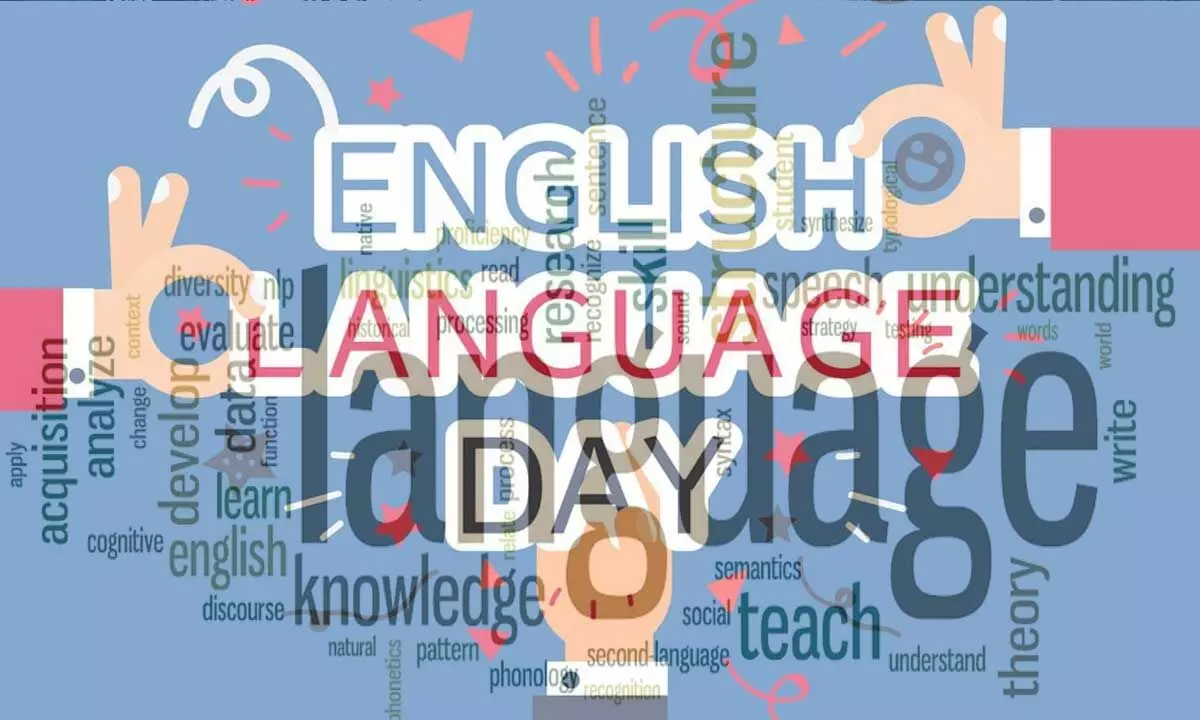Observed annually on April 23, English Language Day is a global celebration of the English language’s richness, history, and influence. Established by the United Nations in 2010, the day coincides with the birth and death anniversary of William Shakespeare, honouring his immense contributions to English literature.Why April 23? The date was chosen to pay tribute to William Shakespeare, one of the most influential writers in the English language.
His plays and poems not only shaped English literature but also introduced numerous words and expressions still used today. A Global Language with Local Impact English has evolved into the most widely spoken language worldwide, transcending borders and connecting people across cultures. It plays a critical role in global communication, diplomacy, education, science, media, and business.

For millions, English is more than a language—it's a gateway to opportunity. Origin and Purpose of the Day Launched by the United Nations Department of Public Information, English Language Day promotes multilingualism and cultural diversity. Along with five other official UN languages—Arabic, Chinese, French, Russian, and Spanish—each has a day of recognition to foster mutual respect and understanding.
The Significance of English Today English serves as a universal tool for knowledge exchange and collaboration. Beyond grammar and vocabulary, it embodies storytelling, critical thinking, and creativity. The day encourages people to reflect on how language shapes societies, opens minds, and inspires ideas.
Celebrating in the Classroom: Fun and Learning Combined Engaging students through creative and educational activities can make English Language Day both fun and impactful. Here are some ideas: • Shakespeare Performances: Have students perform monologues or scenes from Shakespearean plays. • Word Games: Use games like Scrabble, Boggle, or vocabulary bees to promote word knowledge.
• Creative Writing Contests: Host poetry or short story writing competitions to spark imagination. • Literary Exhibits: Create displays highlighting classic and modern English authors and their works. These activities help students enhance their communication skills and deepen their appreciation for the beauty of the English language.
Language as a Lifelong Companion As Lily Roy, Principal of Shree Balaji International School, Navi Mumbai, aptly says, “Language shapes thought, and the ability to use English well empowers students to shape their own narratives. It strengthens academic rigor, fosters self-belief, and becomes a lifelong companion.”Her words capture the essence of why English matters—not just in classrooms but in every aspect of life.
English Language Day reminds us of the power of words. It’s a celebration of diversity, creativity, and global unity through language. Whether through literature, conversation, or education, English continues to be a vital thread that connects people around the world.
.
Entertainment

English Language Day 2025: Celebrating Language, Culture, and Creativity

English Language Day honours the global impact of English, celebrating literature, communication, culture, and Shakespeare's enduring legacy in classrooms worldwide















